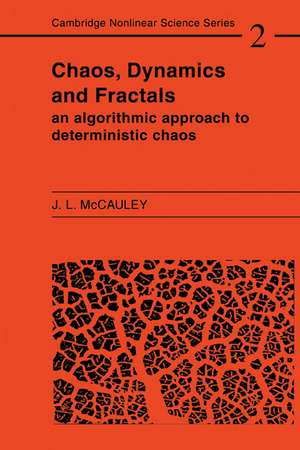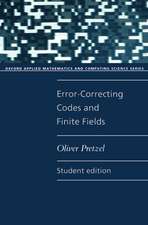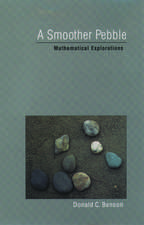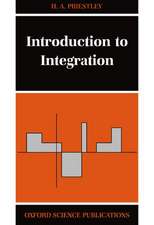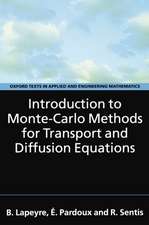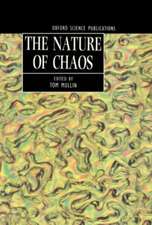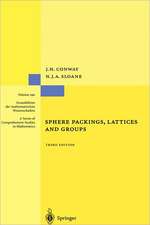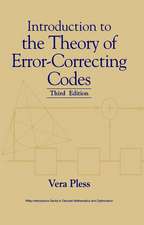Chaos, Dynamics, and Fractals: An Algorithmic Approach to Deterministic Chaos: Cambridge Nonlinear Science Series, cartea 2
Autor Joseph L. McCauleyen Limba Engleză Paperback – 25 mai 1994
Preț: 440.10 lei
Nou
Puncte Express: 660
Preț estimativ în valută:
84.21€ • 87.93$ • 69.54£
84.21€ • 87.93$ • 69.54£
Carte tipărită la comandă
Livrare economică 16-30 aprilie
Preluare comenzi: 021 569.72.76
Specificații
ISBN-13: 9780521467476
ISBN-10: 0521467470
Pagini: 348
Ilustrații: 77 b/w illus.
Dimensiuni: 151 x 229 x 18 mm
Greutate: 0.49 kg
Ediția:Revised
Editura: Cambridge University Press
Colecția Cambridge University Press
Seria Cambridge Nonlinear Science Series
Locul publicării:Cambridge, United Kingdom
ISBN-10: 0521467470
Pagini: 348
Ilustrații: 77 b/w illus.
Dimensiuni: 151 x 229 x 18 mm
Greutate: 0.49 kg
Ediția:Revised
Editura: Cambridge University Press
Colecția Cambridge University Press
Seria Cambridge Nonlinear Science Series
Locul publicării:Cambridge, United Kingdom
Cuprins
Foreword; Introduction; 1. Flows in phase space; 2. Introduction to deterministic chaos; 3. Conservative synamical systems; 4. Fractals and fragmentation in phase space; 5. The way to chaos by instability of quasiperiodic orbits; 6. The way to chaos by period doubling; 7. Multifractals; 8. Statistical physics on chaotic symbol sequences; 9. Universal chaotic dynamics; 10. Intermittence in fluid dynamics; 11. From flows to automata: chaotic systems as completely deterministic machines; References; Index.
Recenzii
' a very readable account … an excellent introduction to fractals and deterministic chaos …' Chemistry in Britain
'very well written' Journal of the Association of C and C++ Users
'very well written' Journal of the Association of C and C++ Users
Descriere
The author presents deterministic chaos from the standpoint of theoretical computer arithmetic, leading to universal properties described by symbolic dynamics.
